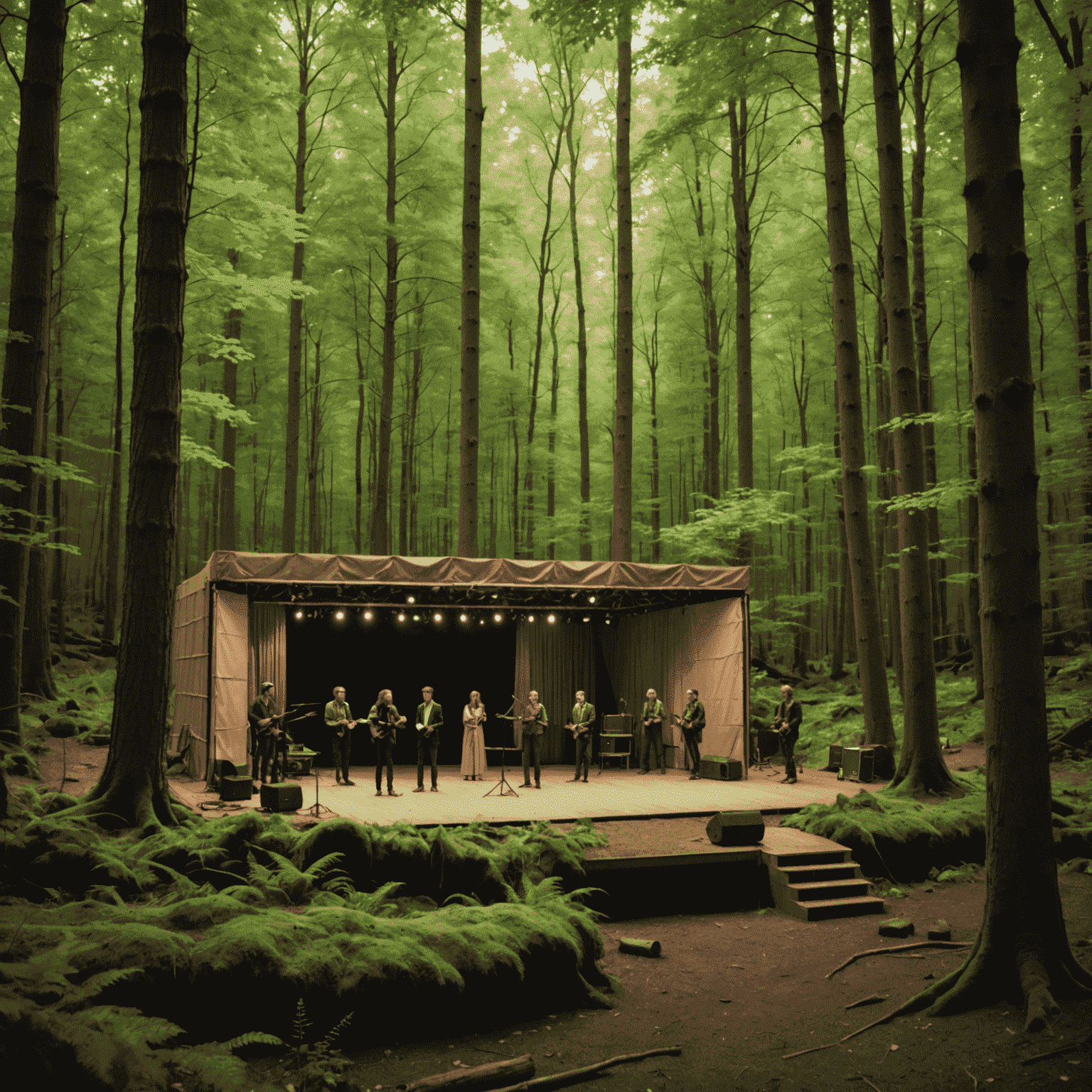Nature's Whisper: Incorporating Natural Sounds in Drama

In the world of dramatic performances, the power of sound often goes beyond dialogue and music. The subtle integration of environmental noises can transform a scene, enhancing its realism and emotional impact. Let's explore how the whispers of nature can elevate the art of drama.
The Urban Symphony
Imagine a bustling city scene. The distant hum of traffic, the chatter of passersby, and the occasional honk of a car horn create an auditory tapestry that immediately transports the audience. These urban atmospherics, when carefully layered into a performance, can add depth and authenticity to any metropolitan-set drama.
Dialogs in the Crowd
Background conversations, or "walla," serve as more than just noise. They can set the mood, indicate the social setting, or even foreshadow plot points. The key is in the subtlety – these sounds should enhance, not overpower, the main dialogue.

Nature's Orchestra
The natural world offers a rich palette of sounds that can dramatically enhance a scene's emotional resonance:
- The gentle rustle of leaves can create a sense of unease or peaceful contemplation.
- A distant roll of thunder might foreshadow conflict or represent a character's inner turmoil.
- The soothing sound of waves can underscore moments of reflection or catharsis.
Technical Considerations
Incorporating natural sounds requires a delicate balance. Sound designers must consider:
- Volume levels that complement rather than compete with dialogue
- The acoustic properties of the performance space
- The seamless integration of recorded sounds with live performances
The Impact on Performers
Actors often report that well-implemented environmental sounds help them stay in character and react more authentically. It's not just about what the audience hears – it's about creating an immersive experience for everyone involved in the production.

Conclusion
The art of incorporating natural sounds into dramatic performances is a subtle yet powerful tool. When done right, it can transport an audience, enhance the realism of a scene, and deepen the emotional impact of the story being told. As technology advances, we can expect even more innovative ways to bring the whispers of nature onto the stage, creating truly immersive theatrical experiences.